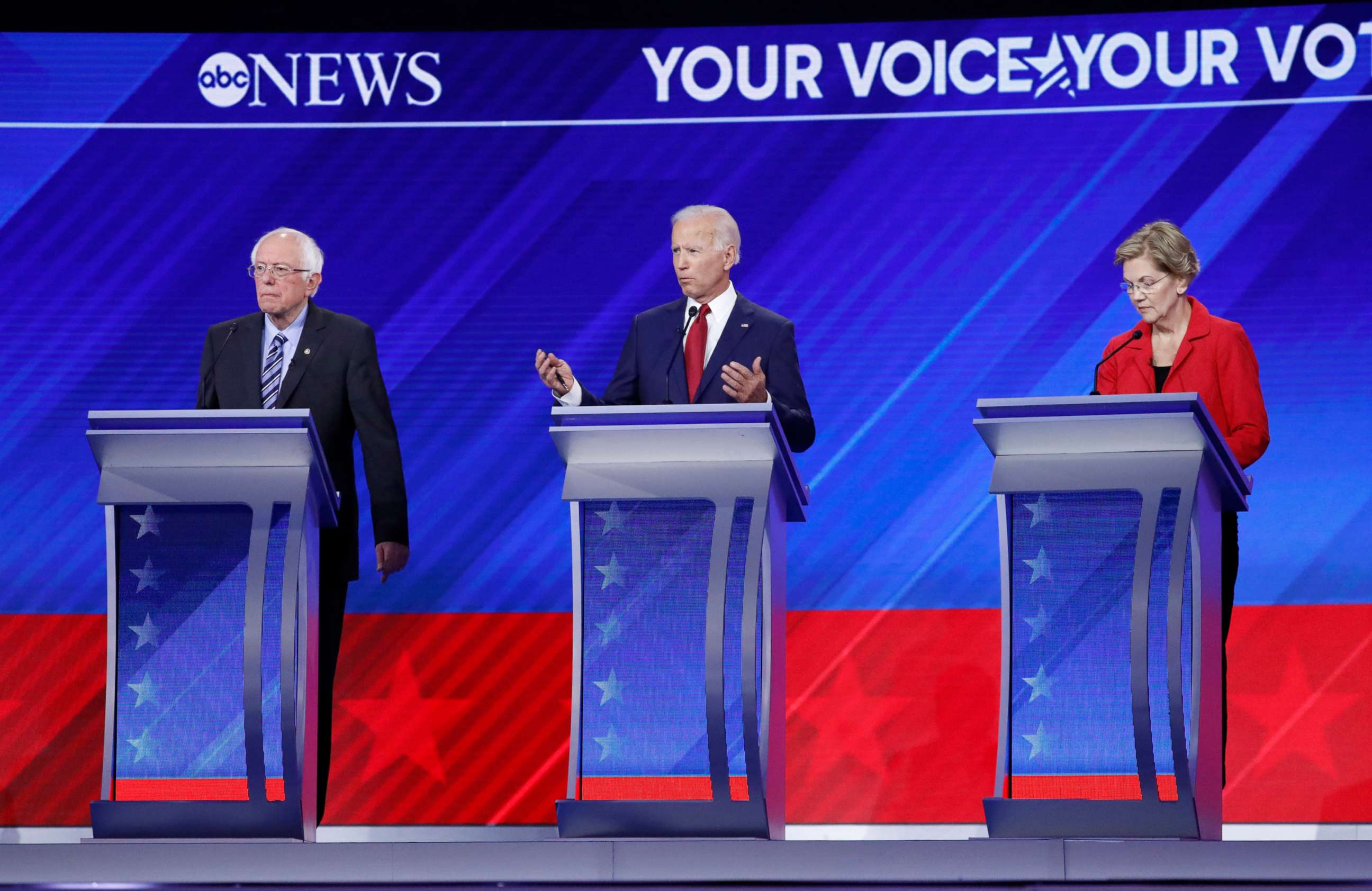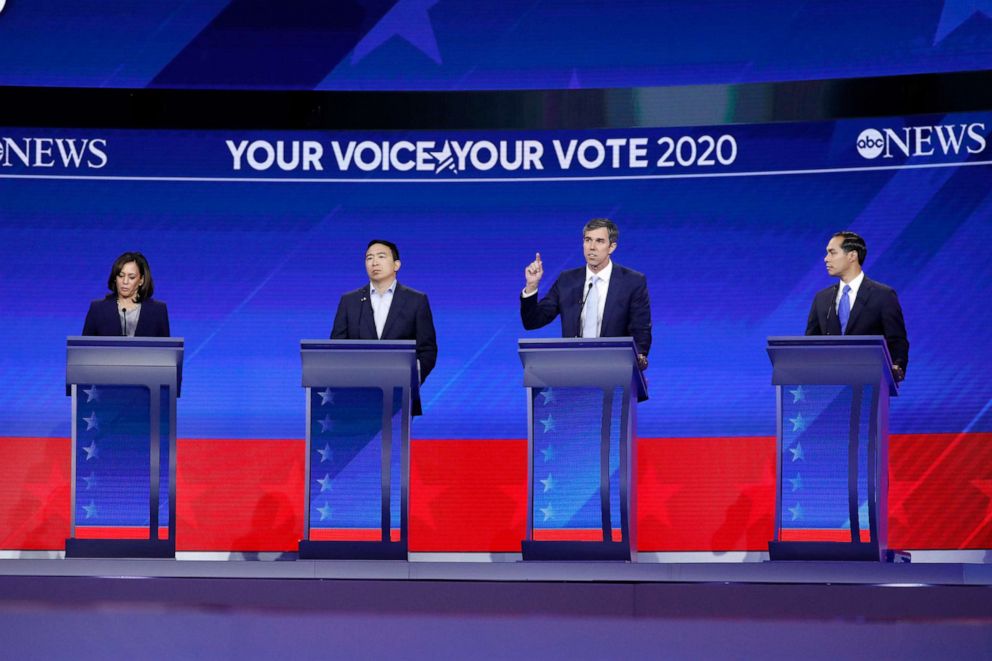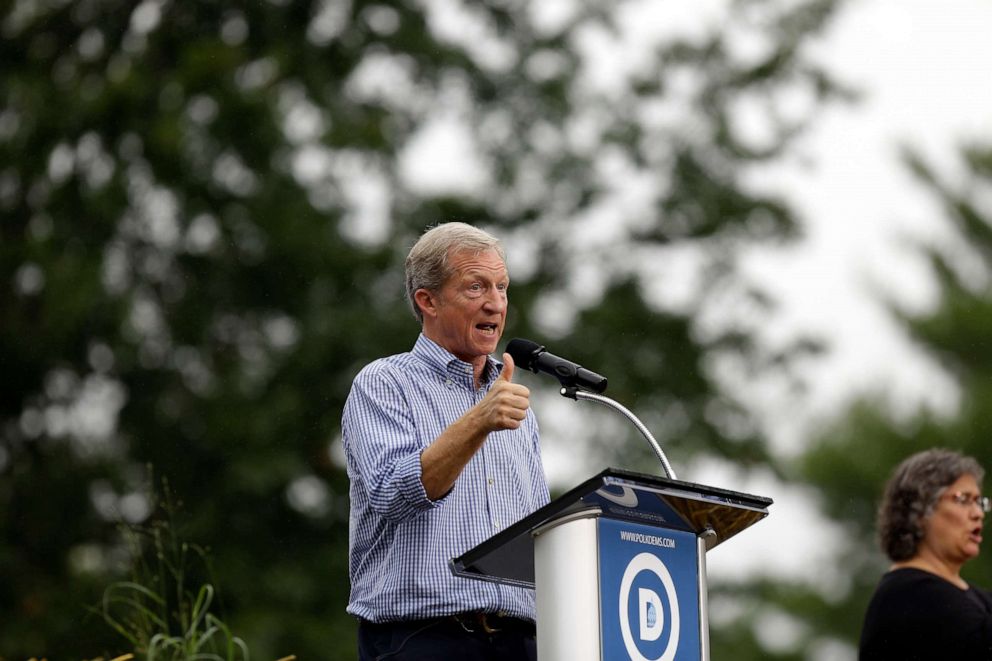DNC announces 12-candidate, single night lineup for 4th presidential debate
The debate will take place at Otterbein University in Ohio on Oct. 15.
The Democratic National Committee announced the lineup on Wednesday for the fourth presidential primary debate, which will feature front-runners Vice President Joe Biden and Sens. Elizabeth Warren and Bernie Sanders along with nine other contenders for a one-night event in Ohio.
The 12 candidates who officially qualified for the debate, in podium order as announced by CNN, are:

The debate, set to be hosted by CNN and The New York Times, will take place on Otterbein University’s campus in Westerville at 8 p.m. ET on Oct. 15. The moderators will be CNN anchors Anderson Cooper and Erin Burnett, and New York Times national editor Marc Lacey. The DNC is expected to announce more details on the debate format at a later date.
The DNC sent a memo to the campaigns Friday clarifying the debate would be a one night affair.
"To address several inquiries we have received, we are writing to let you know that, pending a final decision after the certification deadline, it is the intention of the DNC and our media partners to hold the October debate over one night," the DNC memo, obtained by ABC News, read.

For the first two debates, the DNC limited the number of candidates on stage to 10 each night. For the third debate, which was hosted by ABC News and Univision in September, only 10 candidates qualified, but the DNC had said if more than 10 qualified, the debate would be split over two nights.
Despite just missing the cut for the third primary debate, Steyer is making his debut appearance in a debate since entering the race in early July. Gabbard is also returning to the debate stage, after failing to qualify for September’s debate.

In the field of 19, the seven candidates who did not qualify for the debate includes: Colorado Sen. Michael Bennet, Montana Gov. Steve Bullock, former Maryland Rep. John Delaney, Miramar, Florida, Mayor Wayne Messam, Ohio Rep. Tim Ryan, former Pennsylvania Rep. Joe Sestak and author Marianne Williamson.
According to the rules outlined by the DNC, candidates had to meet both the grassroots fundraising threshold, which stands at 130,000 unique donors, including 400 unique donors per state across at least 20 states, and the polling threshold in order to qualify for the October debate. To meet the polling threshold, candidates needed to get at least 2% support in four national polls or polls out of Iowa, New Hampshire, South Carolina and/or Nevada sponsored by different organizations, or if sponsored by the same organization, polls conducted in different geographical areas. The qualifying polls had to fall between June 28 and Oct. 1 and also be sponsored by an organization approved by the DNC.




